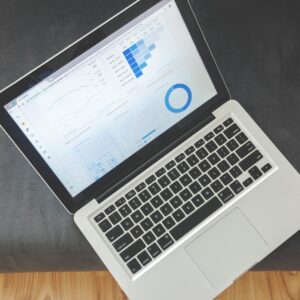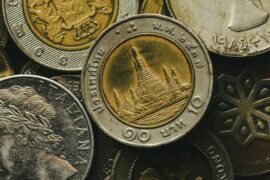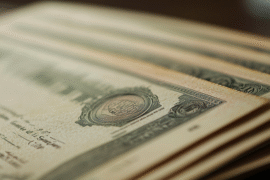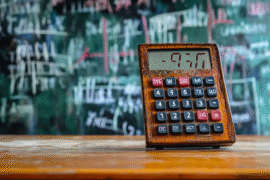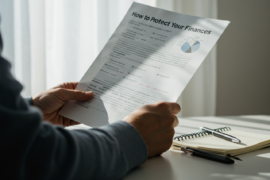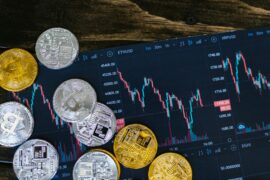This article may contain references to products or services from one or more of our advertisers or partners. We may receive compensation when you click on links to those products or services. Nonetheless, our opinions are our own.
- Key Highlights
- Introduction
- Understanding Homary: An Overview
- The Origin and Growth of Homary
- What Sets Homary Apart: Unique Selling Points
- The Beginner’s Guide to Shopping on Homary
- Dealing with Common Concerns
- Real User Experiences: Success Stories & Complaints
- Conclusion
- Frequently Asked Questions
- Recommended Reads
Key Highlights
- Homary is a global online store specializing in furniture, bathroom fixtures, lighting, and home decor at competitive prices.
- Many customer reviews highlight Homary’s strong customer support, with quick resolutions to buyer issues.
- New customers can explore a variety of product categories, including bestsellers and trending furniture items.
- This guide explains how to navigate the Homary website, create an account, read product reviews, choose payment options, and understand post-purchase expectations.
- Real customer reviews provide insights into both positive experiences and common issues, helping you make informed shopping decisions.
Introduction
Are you considering buying furniture or home decor from Homary but feeling unsure? Shopping at a new online store can be daunting. This guide provides detailed insights into customer experiences with Homary, helping you make an informed decision. With this information, you can shop confidently and enjoy Homary’s vast selection and responsive customer service.
Understanding Homary: An Overview
Homary is a well-known online retailer offering a wide range of furniture, bathroom products, lighting, and home decor. It stands out in the crowded e-commerce market by providing stylish, modern designs at affordable prices. By working directly with manufacturers, Homary eliminates middlemen, ensuring lower prices and high-quality products for customers worldwide.
The Origin and Growth of Homary
Founded in 2012, Homary set out to revolutionize furniture shopping by making stylish home decor accessible to everyone. The founders combined their passion for furniture and technology to create a direct-to-consumer model. This approach allows Homary to collaborate directly with manufacturers, bypassing wholesalers and retailers to keep prices competitive.
Over the years, Homary has expanded its reach, earning a loyal customer base and continuously updating its product selection. Despite its growth, the company remains committed to offering high-quality, affordable home furnishings while prioritizing customer satisfaction.
What Sets Homary Apart: Unique Selling Points
Homary stands out in the online furniture market for several key reasons:
- Competitive Pricing: By working directly with manufacturers, Homary offers stylish furniture at lower prices than traditional retailers.
- Extensive Product Range: Customers can find items for every room, including living rooms, bedrooms, dining areas, home offices, and outdoor spaces.
- Modern and Trendy Designs: Homary provides a diverse selection of furniture styles, catering to various tastes, from mid-century modern to farmhouse aesthetics.
Evaluating Homary’s Product Range
Homary categorizes its products for easy browsing, making the shopping experience seamless. Popular categories include:
- Furniture: living room, bedroom, dining room, office, and outdoor furniture.
- Bathroom: Sinks, vanities, faucets, toilets, bathtubs, showers, and accessories.
- Lighting: ceiling lights, chandeliers, pendant lights, wall lights, table lamps, and floor lamps.
- Decor: Wall art, mirrors, rugs, curtains, throw pillows, and accent pieces.
Each category features a “Bestsellers” section, showcasing popular products highly rated by customers.
Quality and Durability: Customer Feedback Analysis
When purchasing furniture online, product quality is a primary concern. Homary’s website features customer reviews on product pages, allowing buyers to assess quality, durability, and overall satisfaction.
Most reviews highlight the use of high-quality materials and long-lasting furniture. While Homary offers affordable prices, customers generally find the products durable and well-made.
The Beginner’s Guide to Shopping on Homary
Shopping at Homary for the first time can be overwhelming due to the wide selection. However, with a little preparation, your experience can be smooth and enjoyable.
Getting Ready to Shop
Before making a purchase, consider the following:
- Measurements: Ensure the furniture fits your space by taking accurate measurements before adding items to your cart.
- Inspiration: Browse Homary’s website, home decor blogs, Pinterest, or Instagram for design ideas.
- Budgeting: Set a realistic budget, including potential shipping costs and taxes, to avoid overspending.
Step-by-Step Shopping Guide
- Navigate the Website: Visit Homary’s homepage, explore categories, and use filters to refine your search.
- Create an Account: Register for an account to save favorites, track orders, and receive personalized recommendations.
- Browse Products: Click on product pages to view detailed descriptions, images, and customer reviews.
- Check Reviews: Read feedback to assess quality, ease of assembly, and overall satisfaction.
- Make a Payment: Select a preferred payment method, including major credit cards, PayPal, or financing options.
- Track Your Order: After checkout, use the order number to monitor shipping progress and estimated delivery dates.
Dealing with Common Concerns
While most customers have a positive experience, some report issues such as:
- Shipping Delays: Some international orders may take longer than expected.
- Product Discrepancies: In rare cases, items may differ slightly from online images.
- Return complications: Returning large furniture pieces can be costly and time-consuming.
Reading Homary’s return policy and verifying product descriptions before purchasing can help mitigate potential issues.
Returns and Refunds: What to Expect
- Homary typically allows returns within 30 to 60 days, depending on the product and location.
- Customers should inspect items upon arrival and report any damages immediately.
- Refunds and replacements are processed based on Homary’s return policy, and additional shipping fees may apply for returns.
Insider Tips for a Better Shopping Experience
- Watch for Sales: Homary frequently offers discounts and promotions. Signing up for their newsletter ensures you receive updates on special deals.
- Use Live Chat for Quick Support: If you have an urgent question, Homary’s 24/7 live chat feature can provide immediate assistance.
- Check Social Media for Exclusive Offers: Homary sometimes shares exclusive discount codes and promotions on their social platforms.
Real User Experiences: Success Stories & Complaints
Positive Experiences
Many customers praise Homary for:
- High-quality furniture at reasonable prices.
- Efficient and friendly customer service.
- Stylish designs that match product descriptions.
Common Complaints & How Homary Handles Them
- Late Deliveries: Some customers experience longer-than-expected shipping times, particularly for international orders.
- Product Variations: Colors or materials may appear slightly different from website images.
- Return Costs: Returning large furniture items can be expensive due to shipping fees.
Homary’s customer service is generally responsive, offering refunds, replacements, or store credits when necessary.
Conclusion
Homary provides a vast selection of stylish, affordable furniture and home decor. Their direct-to-consumer model ensures competitive prices, and customer service is generally responsive to concerns. While shipping delays and return costs may be drawbacks, understanding Homary’s policies and utilizing available discounts can enhance the shopping experience.
Frequently Asked Questions
Are Homary’s reviews reliable?
While most reviews provide genuine feedback, checking multiple sources for consistency is recommended.
What are Homary’s shipping costs and times?
Costs vary by location and order size. Estimated delivery dates are provided at checkout.
Does Homary accept international orders?
Yes, but delivery times and customs fees may vary by country.
What payment methods does Homary accept?
Major credit cards, PayPal, and financing options (where available).
How does Homary handle damaged items?
Contact customer service immediately for replacements, refunds, or compensation.

Reviewed and edited by Albert Fang.
See a typo or want to suggest an edit/revision to the content? Use the comment form below for feedback.
At FangWallet, we value editorial integrity and open collaboration in curating quality content for readers to enjoy. Much appreciated for the assist.
Did you like our article and find it insightful? We encourage sharing the article link with family and friends to benefit as well - better yet, sharing on social media. Thank you for the support! 🍉
Article Title: Insider Homary Reviews: Everything You Need to Know
https://fangwallet.com/2025/02/06/insider-homary-reviews-everything-you-need-to-know/The FangWallet Promise
FangWallet is an editorially independent resource - founded on breaking down challenging financial concepts for anyone to understand since 2014. While we adhere to editorial integrity, note that this post may contain references to products from our partners.
The FangWallet promise is always to have your best interest in mind and be transparent and honest about the financial picture.
Become an Insider

Subscribe to get a free daily budget planner printable to help get your money on track!
Make passive money the right way. No spam.
Editorial Disclaimer: The editorial content on this page is not provided by any of the companies mentioned. The opinions expressed here are the author's alone.
The content of this website is for informational purposes only and does not represent investment advice, or an offer or solicitation to buy or sell any security, investment, or product. Investors are encouraged to do their own due diligence, and, if necessary, consult professional advising before making any investment decisions. Investing involves a high degree of risk, and financial losses may occur including the potential loss of principal.
Source Citation References:
+ Inspo


